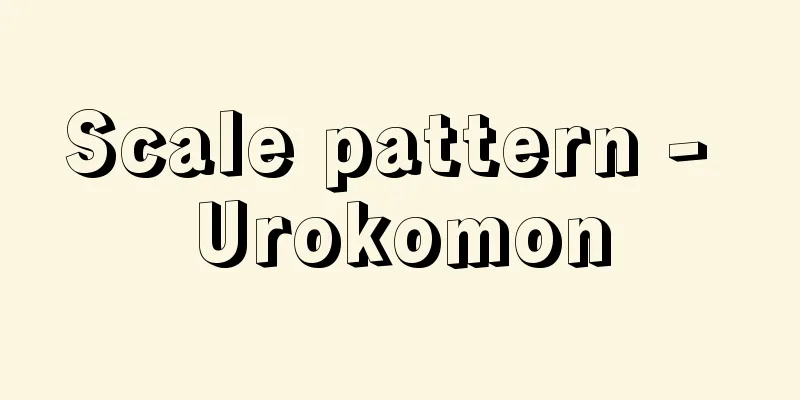Heart - Mind

|
The mind is the function or seat of so-called sensation, perception, knowledge, emotion, and will. If we were to characterize the mind in philosophy, we could say that it is the principle that makes humans human. However, to define the mind more concretely, we need to look at what it is considered to be in opposition to. First, the mind is opposed to the body. In this case, the mind is considered to be something that receives stimuli received by the body and moves the body. Secondly, the mind is considered to be opposed to actions and behavior. The mind is set as the seat of so-called thoughts, emotions, will, etc., as something that lies behind overt actions and works independently of actions. Thirdly, if humans are different as humans, it is because they have different minds, and the mind can be considered as something that makes humans different. And fourthly, the mind can be considered as the "self" that is opposed to the entire world, as it is for none other than the self that the world is seen, heard, and experienced. Thus, the "mind" is by no means a simple concept, but what is common to all of it is that it is a principle that makes humans into "persons" (personalities) and not merely "things." [Ito Shuko] There is no definition of the mind that is agreed upon by all psychologists. However, many psychologists associate psychological processes such as perception, memory, emotion, will, and intellectual activity with the mind. The word mind is often used to mean: (1) the totality of psychological processes that interact with the environment; (2) the totality of conscious experience; (3) a construct for explaining psychological activity and conscious experience; (4) the subject, self, soul, or spirit; and (5) a characteristic pattern of behavior or thought (for example, when referring to the mind of the Japanese or the mind of a primitive person). Before the emergence of empirical psychology, psychology dealt with issues such as the nature of the mind (such as its difference from matter), spirituality (such as its relationship with God), and morality (whether the mind is good or evil), but the question of the nature of the mind in particular has long been an important issue in philosophy and psychology as the "mind-body problem." Regarding the relationship between the mind and the body, several positions can be distinguished, as follows: (1) materialism, which claims that only the body is real; (2) spiritualism, which claims that the body and physical processes are the product of the mind and are merely forms of the mind; (3) interactionism, which claims that the mind acts on the body and the body acts on the mind; (4) parallelism, which claims that mental and physical processes proceed independently and in parallel, without mutual influence; (5) psychophysical parallelism, which claims that certain events that affect the mind also affect the body and vice versa; (6) double aspect theory, which claims that from one perspective the mind is the body and from another perspective the body is the mind, and that the two are essentially two characteristics of a single entity; (7) epiphenomenalism, which claims that mental processes are by-products of physical activity and have no particular role to play; (8) psychophysical isomorphism, which claims that conscious processes and physical processes in the brain are not exactly the same, but that there is a one-to-one correspondence between them. isomorphism, (9) emergentism, which holds that organisms begin to exhibit mental properties when they reach a certain level of complexity. Modern psychology has been influenced by behaviorism and has adopted the position of scientific psychology, which excludes conscious experience from the subject of research because it lacks objectivity, and "psychology without mind" has become mainstream, but this does not mean that the problem of the mind itself has been solved. The problem is how to define the mind, and the reason why the concept of the mind is required is because issues such as the identity of the subject, the constancy of perception, and the relationship with the body arise. Therefore, today, concepts such as "person" and "personality" have been taken up instead of the mind. Regarding the relationship between the mind and the body, specific research topics have been taken up, such as the problem of disorders of psychological processes caused by brain damage or drugs, psychiatric problems that emphasize psychological factors as the cause of physical symptoms, the problem of the phylogenetic and ontogenetic relationship between the development of the brain and the development of psychological functions, and the problem of the relationship between brain activity and various levels of consciousness, and are being studied from the standpoint of natural sciences such as electrochemistry and molecular chemistry. [Utsugi Tamotsu] "What is the Mind?" by Tamotsu Fujinaga et al. (included in Lectures on Modern Psychology 1, 1981, Shogakukan) [Reference items] | | | | |Source: Shogakukan Encyclopedia Nipponica About Encyclopedia Nipponica Information | Legend |
|
心とはいわゆる感覚・知覚および知・情・意の働き、ないしはその座をいう。哲学のうえで心を特徴づけるとすれば、人間を人格たらしめる原理であるといえよう。しかし、いま少し具体的に心を規定するには、それが何と対立して考えられるかをみればよい。まず第一に、心は身体に対立させられる。この場合、心は、身体に受けた刺激を受容するもの、身体を動かすものなどと考えられる。第二に、心は行動、ふるまいに対立するものとして考えられる。表だった行動の背後にあり、行動とは独立に働くものとして、いわゆる思考、感情、意志などの座として心が設定される。第三に、人間同士が人間として異なるとすれば、それは異なる心をもつからであるとして、人間同士を異ならせるものとしての心が考えられる。そして第四に、この世界が見え、聞こえ、味わわれているのは、ほかならぬ自分にとってであるとして、世界いっさいに対立する「自分」としての心が考えられる。このように「心」はけっして単純な概念ではないが、そこに共通してみいだされるのは、人間を単なる「物」でない「者」(人格)とする原理だということである。 [伊藤笏康] 心理学者のだれもが承認するような心の定義はまだない。しかし多くの心理学者は、知覚、記憶、感情、意志、知的活動などの心理的過程を心と結び付けて考えている。心ということばは、次のような意味で用いられることが多い。(1)環境との間に相互作用を営む心理的過程の全体、(2)意識的経験の全体、(3)心理的活動や意識的経験を説明するための構成概念、(4)主体、自己、魂または霊魂、(5)行動または思考の特徴的様式(たとえば、日本人の心、未開人の心などという場合)。 経験的心理学が登場する以前の心理学は、心の本質(物質との違いなど)、霊性(神との関係など)、道徳性(心の善悪)などの問題を取り上げて論じていたが、とくに心の本質の問題は「心身問題」として長い間引き続き哲学や心理学の重要問題となってきた。心と身体との関係については、次のようないくつかの立場を区別することができる。(1)身体だけが実在すると主張する唯物論materialism、(2)身体および身体的過程は心の働きの所産であり、心の現象形態にすぎないと主張する唯心論spiritualism、(3)心は身体に作用し身体は心に作用すると主張する相互作用説interactionism、(4)心的過程と身体的過程とは相互に影響しあうことなく、まったく独立に並行して進行していると主張する並行説parallelism、(5)心に影響を与えるある種の事象は身体にも影響を与え、身体に影響を与えるある種の事象は、心にも影響を与えると主張する心理物理的並行説psychophysical parallellism、(6)ある見方からすれば心は身体であり、また別の見方からすれば身体は心であり、両者は基本的には一つの本体のもつ二つの特性であると主張する両面説double aspect theory、(7)心的過程は身体的活動の副産物であって、とくに重要な役割をもたないと主張する付随現象説epiphenomenalism、(8)意識的過程と脳の物理的過程とはまったく同一だというわけではないが、両者の間には一対一の対応関係があると主張する心理物理的同型説psychophysical isomorphism、(9)生物がある程度複雑になると、心的性質を示すようになると主張する発出説emergentism。 現代の心理学は行動主義の影響を受け、意識的経験を客観性に欠けるものとして研究対象から排除する科学的心理学の立場をとり、「心のない心理学」が主流を占めるようになったが、それによって心に関する問題そのものが解決されたわけではない。問題は心をどう定義するかであるが、心という概念が要求される理由は主体の同一性とか、認識の恒常性とか、身体との関係とかいったことが問題になるからである。そこで今日では、心にかわって「人」とか「パーソナリティー」とかいった概念が取り上げられている。また、心と身体との関係についても、脳損傷や薬物による心理的過程の障害の問題、身体症状の原因として心理的因子を重視する精神医学的な問題、脳の発達と心理的機能の発達との系統発生的・個体発生的関係の問題、脳活動とさまざまな意識水準との関係の問題、などの具体的研究課題が取り上げられ、電気化学・分子化学などの自然科学的な立場から研究されている。 [宇津木保] 『藤永保他著『心とは何か』(『講座 現代の心理学1』所収・1981・小学館)』 [参照項目] | | | | |出典 小学館 日本大百科全書(ニッポニカ)日本大百科全書(ニッポニカ)について 情報 | 凡例 |
<<: Heart Mystery Solving Colored Threads - Heart Mystery Solving Colored Threads
Recommend
Loasa vulcanica (English spelling)
… [Mitsuru Hotta]... *Some of the terminology tha...
Can fly - Can fly
…In Europe, there is a species that even breeds i...
Godai Art
During the Five Dynasties (907-960), between the T...
Inn [river] - Inn
It originates in a lake in the Bernina Alps in Swi...
Ordinary type bicycle
... It is said that the first bicycles were broug...
Yoshiko Kawashima
A spy during the Sino-Japanese War. She was the 14...
Checkpoint pass - Sekisho-tegata
A pass through a checkpoint. In ancient times and...
Ann Landers
1918‐2002 American female journalist. Her real nam...
Carlo [VII] - Carlo
…In Naples, rebellions by the lower classes occur...
Galdan Tsering - Galdan Tsering
…In 96, he suffered a decisive defeat at the hand...
War between the States
...Other names used by the Union side include &qu...
Shosei
A Chinese poet from the late Ming Dynasty. His pe...
Campagnola, G. (English spelling) Campagnola G
…There are engravings and etchings. Giulio Campag...
Giedion, Sigfried
Born: April 14, 1893 in Lengnau [Died] 9 April 196...
Obaku-sama
… [Takanuki Motokatsu] [Cultural Assets] The temp...









